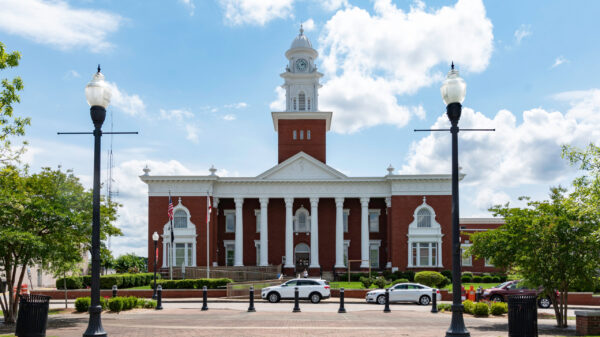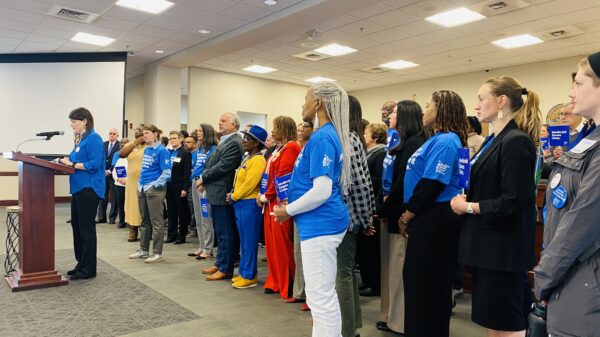Staff Report
MONTGOMERY, Alabama — Royalties paid to the state by companies pumping natural gas offshore fell from a high of $373.1 million in the 2006 fiscal year to $119.9 million in fiscal 2011, according to the State Oil and Gas Board.
The board expects that decline to continue in fiscal 2012, which ends Sept. 30, with royalties for the year totaling $72.3 million.
”I think it’s bad news. It’s another obstacle that we’ll face in trying to garner sufficient resources to fund state government,” said Sen. Arthur Orr, R-Decatur, who chairs the state Senate committee that oversees Alabama’s operating budget for Medicaid, prisons and other noneducation areas of government.
The board expects Alabama’s royalties from offshore natural gas to range from $69.1 million to $75.4 million a year in fiscal 2013 through fiscal 2016, and then to steadily decline, assuming no big jump in natural gas prices. The board estimates royalties of about $50 million in fiscal 2020 and $32 million in fiscal 2025.
”That is the bottom line: We’ll get less money from those resources,” state Treasurer Young Boozer said.
Dave Bolin, deputy director of the State Oil and Gas Board, which is based in Tuscaloosa, said state royalties rise and fall with the amount of gas produced offshore multiplied by the price for natural gas.
”The production is currently showing an 8.53 percent decline on an annual basis,” Bolin said. ”Unless there is a substantial increase above current prices, the revenues will continue to decline.”
Natural gas royalties paid by ExxonMobil, Shell and other companies have been a huge windfall for the state since commercial production started more than two decades ago.
For example, royalties paid the state totaled $3.5 billion from fiscal 1993 through fiscal 2011. But the flow of cash has slowed as production offshore has steadily declined since 2003 and natural gas prices nationwide have plunged since 2008, in part because of increased production of natural gas extracted from shale rock formations.
”It’s a finite resource,” Bolin said of the state’s offshore reservoirs of natural gas. ”There’s only so much of it.”
Most of state government’s natural gas royalties, 64.35 percent under current law, go to the Alabama Trust Fund, a state savings account that on April 30 had $2.28 billion in invested assets. State voters in the 1980s amended the state constitution to create the trust fund.
Each year, about 69 percent of the trust fund’s interest and other income goes to the state General Fund, a major source of money for Medicaid, prisons and other noneducation areas of government.
The trust fund’s nine-member board, led by the governor, also can transfer to the General Fund as much as 52.5 percent of the trust fund’s annual capital gains, such as profits from sales of stocks.
The General Fund collected from the trust fund $119.1 million in the 2011 fiscal year, $64.4 million in fiscal 2010, $94.7 million in fiscal 2009 and $213.3 million in fiscal 2008, state records show.
The General Fund so far in this fiscal year has hauled in $311.7 million from the trust fund, mainly because of a one-time $266.4 million payment that arose after the Attorney General’s Office said the trust fund board underestimated past payments to the General Fund and other accounts and shortchanged them.
The $311.7 million collected from the trust fund so far this year represents 18 percent of all General Fund spending budgeted for the entire fiscal year.
Smaller shares of earnings, or in some cases capital gains, from the Alabama Trust Fund under current law are distributed to cities and counties statewide, the state’s Forever Wild land conservation program, a senior services trust fund and a trust fund for cities and counties. Forever Wild got $15 million in fiscal 2011, for instance.
Orr said the Alabama Trust Fund would have had more money to invest, and that earnings or capital gains for the General Fund and other recipients almost certainly would have been greater if the state’s royalty payments hadn’t declined so much in recent years.
”The effect is extremely detrimental on state government, and more particularly, the funding for the General Fund,” Orr said. ”We’ve been feeling this decline in addition to just the reduction of ordinary tax revenues during the economic decline.”
Orr said the State Oil and Gas Board’s forecast for future royalties, especially the drop expected after fiscal 2016, ”is just another bad omen for the future of reliable General Fund revenues.”




















































